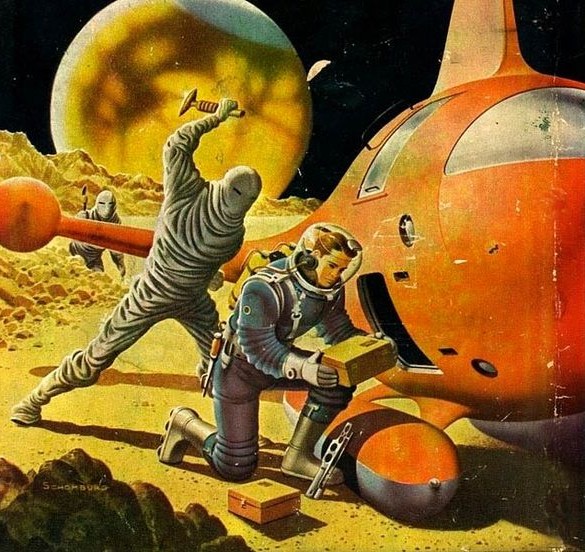Has there ever been an era when enthusiasts have gotten so far ahead of themselves in terms of scientific and technological possibilities? I was reading an article the other day, clearly written by an intelligent person, who proclaimed that by 2050 we would see the “end of death,” that we will have left mere biological life behind. I’m not saying that such a transition is impossible, but it won’t be happening during our lifetimes. We are, ultimately, toast.
Likewise, I have no doubt we can eventually colonize space if we don’t do ourselves in first. We should certainly be sending human-less probes and 3D printers to Mars and elsewhere, but it’s probably a good idea to stay realistic about what we can accomplish in each era. In a rush to save ourselves, we may lose sight of the proper path.
In “What Will It Take for Humans to Colonize the Milky Way?” a Scientific American article, Kim Stanley Robinson stresses the difficulty of near-term colonization of other star systems. The opening:
The idea that humans will eventually travel to and inhabit other parts of our galaxy was well expressed by the early Russian rocket scientist Konstantin Tsiolkovsky, who wrote, “Earth is humanity’s cradle, but you’re not meant to stay in your cradle forever.” Since then the idea has been a staple of science fiction, and thus become part of a consensus image of humanity’s future. Going to the stars is often regarded as humanity’s destiny, even a measure of its success as a species. But in the century since this vision was proposed, things we have learned about the universe and ourselves combine to suggest that moving out into the galaxy may not be humanity’s destiny after all.
The problem that tends to underlie all the other problems with the idea is the sheer size of the universe, which was not known when people first imagined we would go to the stars. Tau Ceti, one of the closest stars to us at around 12 light-years away, is 100 billion times farther from Earth than our moon. A quantitative difference that large turns into a qualitative difference; we can’t simply send people over such immense distances in a spaceship, because a spaceship is too impoverished an environment to support humans for the time it would take, which is on the order of centuries. Instead of a spaceship, we would have to create some kind of space-traveling ark, big enough to support a community of humans and other plants and animals in a fully recycling ecological system.•
Tags: Kim Stanley Robinson

